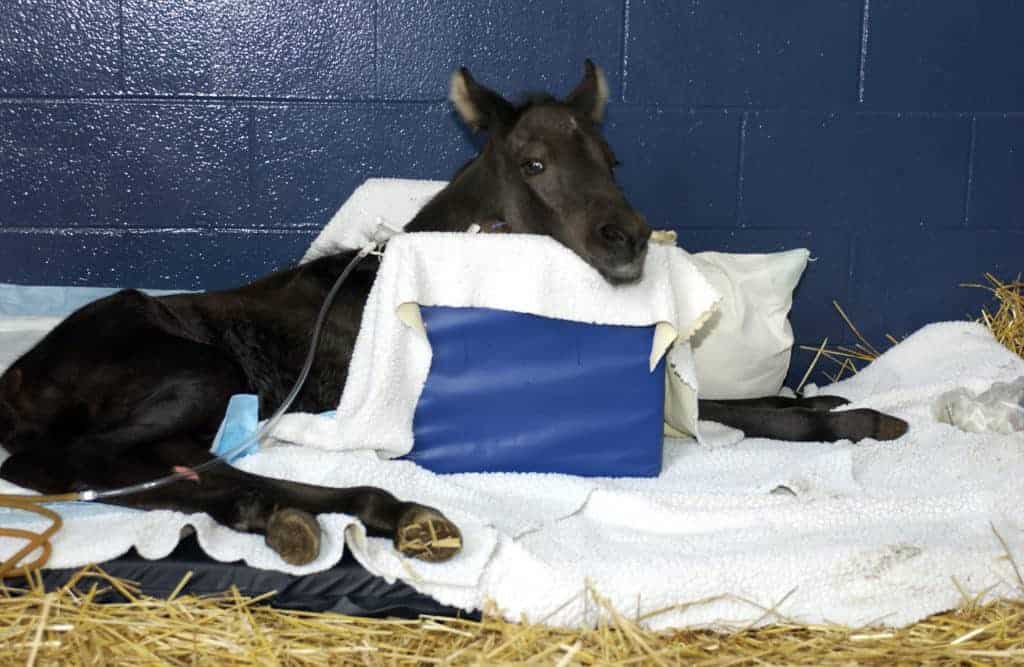
Mares and Foals Have Field of Vision Preferences
Researchers have learned that foals and dams appear to prefer looking at each other with their left eyes and keeping each other in their left field of vision in most situations.

Researchers have learned that foals and dams appear to prefer looking at each other with their left eyes and keeping each other in their left field of vision in most situations.

In horses bone development begins in the womb, but researchers are still working to understand the complexities of in utero bone growth.

Is your parasite control program right for your horses? Find out and get your deworming questions answered!

Be familiar with the most common problems that can happen within 24 hours of foaling.

Meconium impactions are the most common cause of intestinal obstruction and one of the most prevalent health issues overall in neonatal foals.

Foals’ initial expressions of their developing personalities are clear signs of the horse’s adult personality–and even learning capacity–to come, researchers found.

Using a targeted probiotic might be an effective way to reduce C. difficile-associated diarrhea in neonatal foals, researchers found.

Find out the pros and cons of a stall vs. pasture birth from Dr. Michelle Linton of the University of Pennsylvania.

University of Pennsylvania’s Dr. Michelle Linton describes the how a normal foaling should progress.

The collection includes research on controlling equine influenza, immunology in young horses, herd immunity, and more.

Weanlings turned out with shelter access had no more respiratory issues than those housed in warmer stables during a harsh Finnish winter.

Ensure your foal has a smooth start to life and prompt treatment of any issues that might arise.

Do you have a foal due? Learn how to prepare your mare for foaling, care for your newborn, and spot issues early.

Researchers found that surgical correction of a patent urachus or infected umbilical remnants often has a good outcome.

If foals are diagnosed and treated early they generally have a fair to good chance to make a full recovery.
Lecture topics will include parasitology, gastric ulcers, fescue management, respiratory conditions, and more.
Stay on top of the most recent Horse Health news with
Notifications